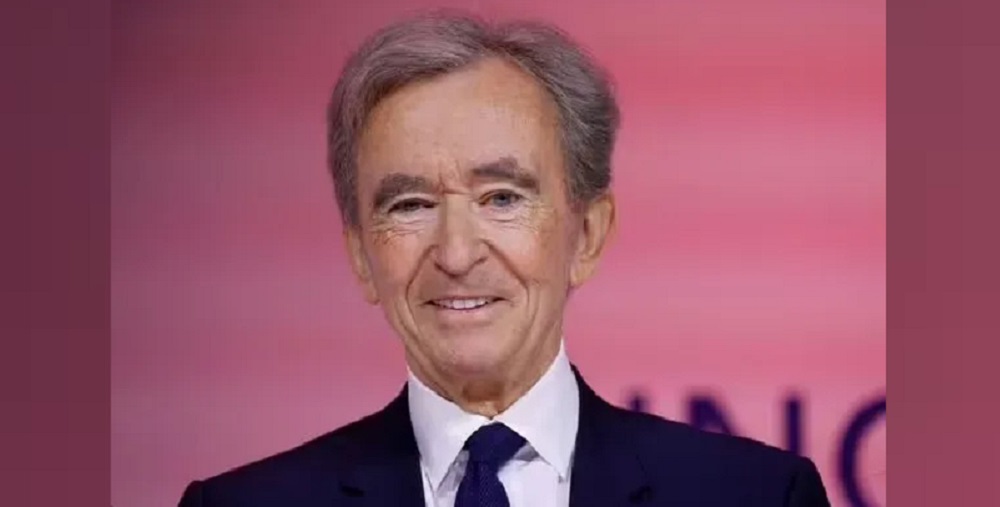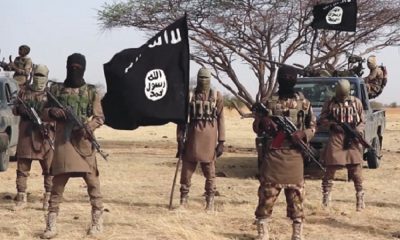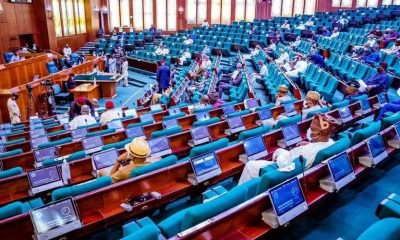Foreign
Europe’s richest man dubbed “wolf in cashmere” overtook Elon Musk as world’s wealthiest

Bernard Arnault is the European fashion tycoon and owner of some of the world’s biggest brands who once dethroned Elon Musk as the world’s richest person after being valued at a staggering $200 billion.
Dubbed the “wolf in cashmere”, Arnault is the man behind some of the world’s best-known luxury brands, owning nearly all of Christian Dior and more than 40pc of LVMH, the company behind Louis Vuitton, Givenchy, Moët & Chandon and more.
The 75-year-old Frenchman wasn’t always a fashion mogul, with a humble beginning in his father’s construction company and a brief stint in real estate. The change came when he purchased a struggling Boussac aint-Freres, the owners of Christian Dior in the 1980s.
Getting his first taste in the luxury world Arnault he quickly became of infamous for his aggressive business practices earning him the nickname “The terminator”.
His devoted faith in the luxury goods market over has always been clear. Recounting a conversation with Steve Jobs to the New York Times he said: “Steve Jobs once asked me for some advice about retail, but I said, ‘I am not sure at all we are in the same business.’ I don’t know if we will still use Apple products in 25 years, but I am sure we will still be drinking Dom Pérignon.”
His wealth rapidly expanded after the merging of Louis Vuitton and Moet Hennesey where, over the next four decades, he began to sweep up the luxury goods sector with brands such as Bulgari, Belvedere, Kenxo, Dom Perignon, Givenchy, Tag Heuer and French beauty chain Sephora all coming under his umbrella.
His companies have continued to boom in the post-pandemic world, with LVMH reporting a revenue of $93.2 billion last year, briefly dethroning Elon Musk in March to become the world’s richest man. A dip in the stock led his worth to fall slightly but he still remains the only non-American in the top 10 of the Forbes billionaire list – a clear outlier being surrounded by U.S tech tycoons like Meta’s Mark Zuckerberg and Google’s Larry Page.
He is known to be a ruthless operator, having engaged in a longstanding public battle against rival Francois Pinault, the founder of direct competitor Kering, owner of Yves St.Laurent. According to Forbes, the feud goes back to 1999 when LVMH lost to Kering in the battle to acquire Gucci and with Arnault holding a grudge ever since.
Foreign
Pope Leo XIV, celebrates first Mass, wants Church to be beacon of light

Pope Leo XIV celebrated his first Mass on Friday in the Sistine Chapel where he was elected less than 24 hours earlier, warning of the dangers caused by a lack of faith and hoping the Catholic Church could be a beacon lighting the world’s “dark nights”.
Leo, the former Cardinal Robert Prevost and the first U.S. pope, looked calm as he delivered the Mass in the famous, frescoed chapel with the same cardinals who chose him to be the 267th pontiff and the successor to Pope Francis.
Dressed in relatively simple white and gold vestments, Leo, who was born in Chicago but spent two decades as a missionary in Peru, said a few words in English before continuing his homily in fluent Italian.
In the homily, Leo, 69, painted a picture of the Church he would like to see, saying he would seek to serve as the “faithful administrator” for the Church as a whole.
The new pope, who leads 1.4 billion Catholics around the world, acknowledged that the Christian faith is sometimes “considered absurd” and the preserve of “the weak and unintelligent”.
“A lack of faith is often tragically accompanied by the loss of meaning in life, the neglect of mercy, appalling violations of human dignity, the crisis of the family and so many other wounds that afflict our society,” he said.
MAY 18 INAUGURATION
An inauguration Mass for Leo will be held in St. Peter’s Square on Sunday May 18, the Vatican said.
World and religious leaders are invited to the inauguration, which marks the formal launch of a papacy. Pope Francis’ inauguration in 2013 attracted a crowd estimated at 200,000 people.
The new pope will also leave senior Vatican officials in their roles for the time being, giving him time to decide before making definitive appointments, the Vatican said.
All Vatican senior officials, appointed for five-year terms, serve at the pleasure of the pope. A new pontiff usually rolls over existing mandates at least initially before deciding whether to change key positions.
The pope was elected at the end of a two-day conclave that was wrapped up on Thursday evening when white smoke billowed from the chimney on the Sistine Chapel.
Item 1 of 8 Pope Leo XIV conducts Mass in the Sistine Chapel at the Vatican, May 9, 2025. Vatican Media/Simone Risoluti Handout via REUTERS
Given the nature of the conclaves, when cardinals are shut away from the world and sworn to secrecy, little or nothing is likely to emerge – at least for now – about how Leo obtained the required two-thirds majority of the vote so swiftly.
The successor to Pope Francis, who died last month at the age of 88, inherits a number of major challenges, ranging from a budget shortfall to divisions over whether the Church should be more welcoming towards the LGBT community and divorcees, and should let women play a greater role in its affairs.
He will also have a packed agenda, with the Vatican celebrating a Holy Year that brings millions of additional tourists to Rome.
THE FIRST US POPE
Before Leo’s election, U.S. cardinals had largely been written off as papal contenders because of a widespread assumption that the global Church could not be run by a superpower pope.
However, he also holds Peruvian citizenship, meaning that he has deep knowledge of both the West and less developed nations.
U.S. President Donald Trump was quick to congratulate Leo. However, the new pope has a history of criticizing Trump and Vice President JD Vance’s policies, according to posts on the X account of Robert Prevost.
Leo worked for decades in the north of Peru, first as a missionary and later as Bishop of Chiclayo from 2015 to 2023. Catholics took to the streets of the small city in northwestern Peru, and church bells rang out to celebrate the election of a man who they embrace as one of their own.
One of the clues to what kind of a Church leader Leo will be was in his choice of name. The last pope with this name was Leo XIII, who led the Church from 1878-1903. He was known for his devoted focus to social justice issues.
Prevost became a cardinal only in 2023. He has given few media interviews and is known to have a shy personality.
Francis brought him to Rome two years ago to head the Vatican office in charge of choosing which priests should serve as Catholic bishops, meaning he has had a hand in selecting many of the world’s bishops.
Foreign
Inaugural Mass of Pope Leo XIV to be held on May 18 – Vatican

The Vatican had announced that Pope Leo XIV will be inaugurated on Sunday, May 18, 2925, in St Peter’s Square.
World leaders will gather for the event which will be held 10 days after the election of Robert Francis Prevost as the first United States head of the world’s 1.4 billion Catholics.
The Vatican said the new pontiff will meet with journalists on Monday and with diplomats accredited to the Holy See the following Friday.
His first general audience will be on Wednesday May 21, 2025, and he will meet with members of the Roman Curia, top Vatican officials, on May 24, 2025.
Cardinal Robert Prevost, an American-born cleric and seasoned Vatican official, was elected Pope on Thursday, May 8, 2025, taking the name Leo XIV.
Foreign
US Supreme Court Allows Trump’s Ban On Trans Troops To Take Effect

A divided US Supreme Court on Tuesday allowed President Donald Trump’s ban on transgender military personnel to take effect while litigation plays out, putting thousands of troops at risk of dismissal.
The ruling — which the court’s three liberal justices opposed — is a significant victory for Trump, who has made rolling back transgender rights a major part of his second term in office, and has railed against judges who blocked parts of his agenda.
Lambda Legal and the Human Rights Campaign Foundation — which filed the lawsuit that had resulted in a lower court temporarily blocking the implementation of the ban — slammed the Supreme Court’s decision.
The ruling “is a devastating blow to transgender servicemembers who have demonstrated their capabilities and commitment to our nation’s defense,” the organizations said in a statement .
“Transgender individuals meet the same standards and demonstrate the same values as all who serve. We remain steadfast in our belief that this ban violates constitutional guarantees of equal protection and will ultimately be struck down,” they said.
White House Press Secretary Karoline Leavitt hailed the ruling as “another MASSIVE victory in the Supreme Court,” saying in a post on X that Trump and Pentagon chief Pete Hegseth “are restoring a military that is focused on readiness and lethality — not DEI or woke gender ideology.”
Hegseth meanwhile responded to the news with a post on his personal X account that said: “No More Trans @ DoD.”
In a January 27 executive order, Trump stated that “expressing a false ‘gender identity’ divergent from an individual’s sex cannot satisfy the rigorous standards necessary for military service.”
Shifting policies
The Pentagon followed that up with a memo issued in late February stating that it would remove transgender troops from the military unless they obtain a waiver on a case-by-case basis, as well as prevent transgender people from joining.
The Supreme Court’s decision to allow the ban to take effect means thousands of currently serving troops could be removed from the ranks.
The restrictions in the Pentagon memo are aimed at those who have been diagnosed with gender dysphoria — of whom there were 4,240 serving in the military as of late last year, according to a senior defense official — as well as those who have a history of the condition or exhibit symptoms of it.
Transgender Americans have faced a roller coaster of changing policies on military service in recent years, with Democratic administrations seeking to permit them to serve openly, while Trump has sought to keep them out of the ranks.
The US military lifted a ban on transgender troops in 2016, during Democrat Barack Obama’s second term as president.
Under that policy, trans troops already serving were permitted to do so openly, and transgender recruits were set to start being accepted by July 1, 2017.
But the first Trump administration postponed that date to 2018 before deciding to reverse the policy entirely.
Trump’s restrictions on transgender military service — which underwent changes in response to various legal challenges — eventually came into force in April 2019 following a protracted legal battle that went all the way to the nation’s top court.
His Democratic successor Joe Biden moved to reverse the restrictions just days after he took office in 2021, but Trump was reelected last year after making clear he would again seek to target transgender rights.
Transgender issues have roiled US politics in recent years, as states controlled by Democrats and Republicans have moved in opposite directions on policies ranging from medical treatment to what books on the topic are allowed in public or school libraries.
AFP
-

 News8 hours ago
News8 hours agoJust in: Popular Yoruba traditional ruler joins his ancestors
-

 News18 hours ago
News18 hours agoReal reason APGA snubbed Obi, adopts Tinubu
-

 News19 hours ago
News19 hours agoSenate endorses Tinubu’s full tax reform package
-

 News12 hours ago
News12 hours agoExperts say helicopter firm may face criminal charges over Herbert Wigwe’s death
-

 News8 hours ago
News8 hours agoJust in: Nigeria is still owing us N190bn- IMF insists
-

 Politics12 hours ago
Politics12 hours agoAwolowo’s grand-daughter resigns as LP executive committee member
-

 News8 hours ago
News8 hours agoJust In: JAMB releases 2025 UTME results, withholds 39,834 over misconduct
-

 News18 hours ago
News18 hours agoTrump Congratulates First American Pope, Leo XIV

















